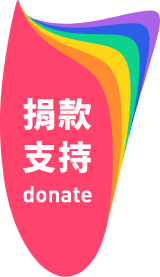Pride Month Feature — When SOGIESC Rights Face Backlash: How Can We Keep Advancing Gender Equality?
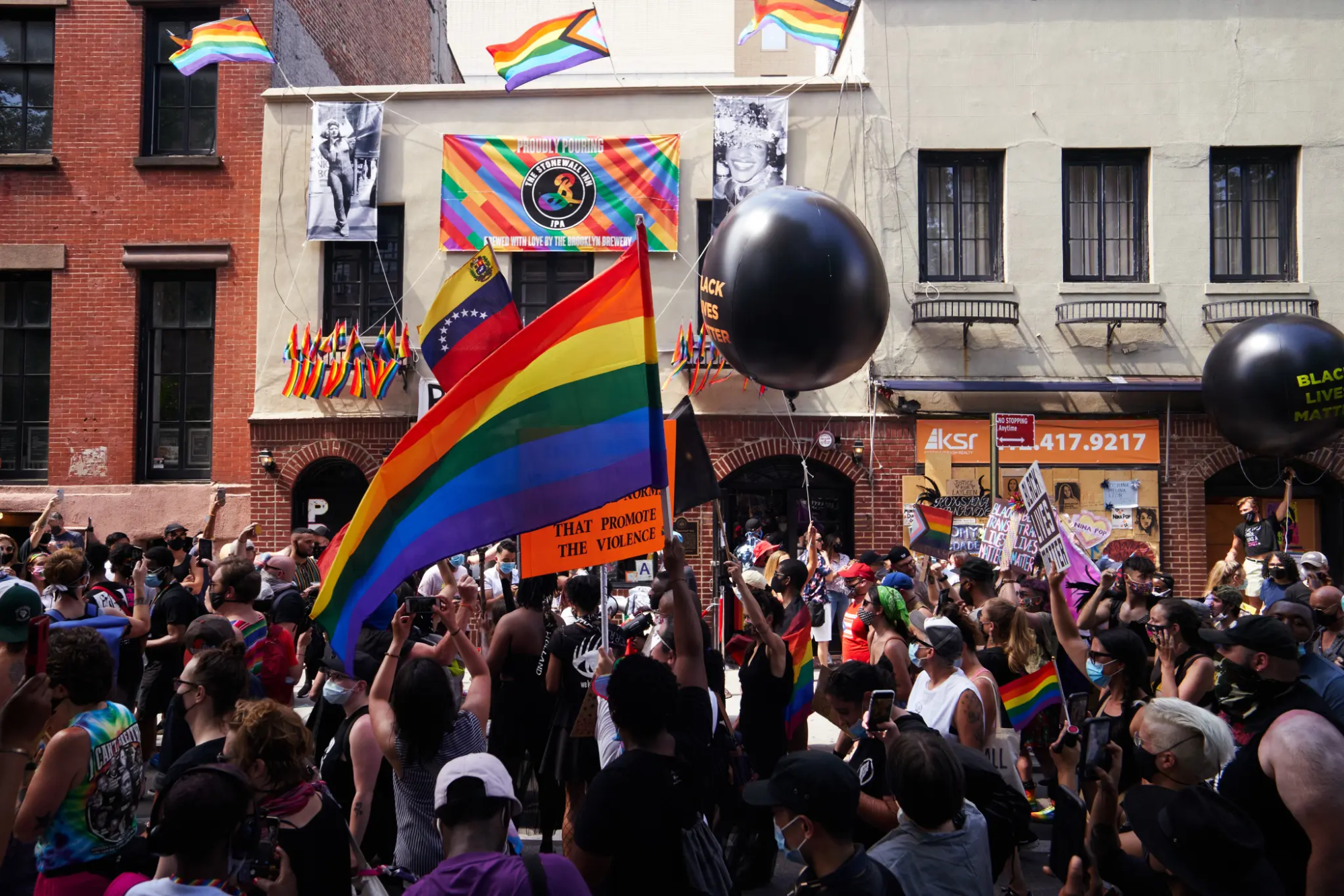
In the summer of 1969, a five-day street uprising erupted at the Stonewall Inn in Greenwich Village, New York. After years of police raids and harassment, the LGBTQ+ community—particularly trans women, and young Black and Latinx queer people—chose to fight back. They took to the streets, resisting systemic oppression. This marked the beginning of the modern international Pride movement and laid the foundation for global LGBTQ+ rights activism.
Over the past half-century, “Pride parades” and “Pride Month” have become powerful symbols of action and resistance, core rallying cries in the global struggle for LGBTQ+ rights—from decriminalisation and anti-discrimination laws to legal recognition of gender identity. That spark from the streets continues to illuminate the path to gender equality for countless people today.
However, even as gender diversity rights advance, conservative backlash is rising around the world, coalescing into a transnational “anti-gender movement.” This movement can be traced back to internal Catholic Church debates in the 1990s, opposing abortion rights, same-sex relationships, trans rights, and all identities perceived to challenge “traditional” gender norms. Though the conceptual framework of the anti-gender movement was established in 2003, it gained momentum in the 2010s—expanding beyond religious institutions and gaining traction among right-wing political parties.
The Global Rise of the Anti-Gender Movement: Shrinking Rights for Gender Minority Communities
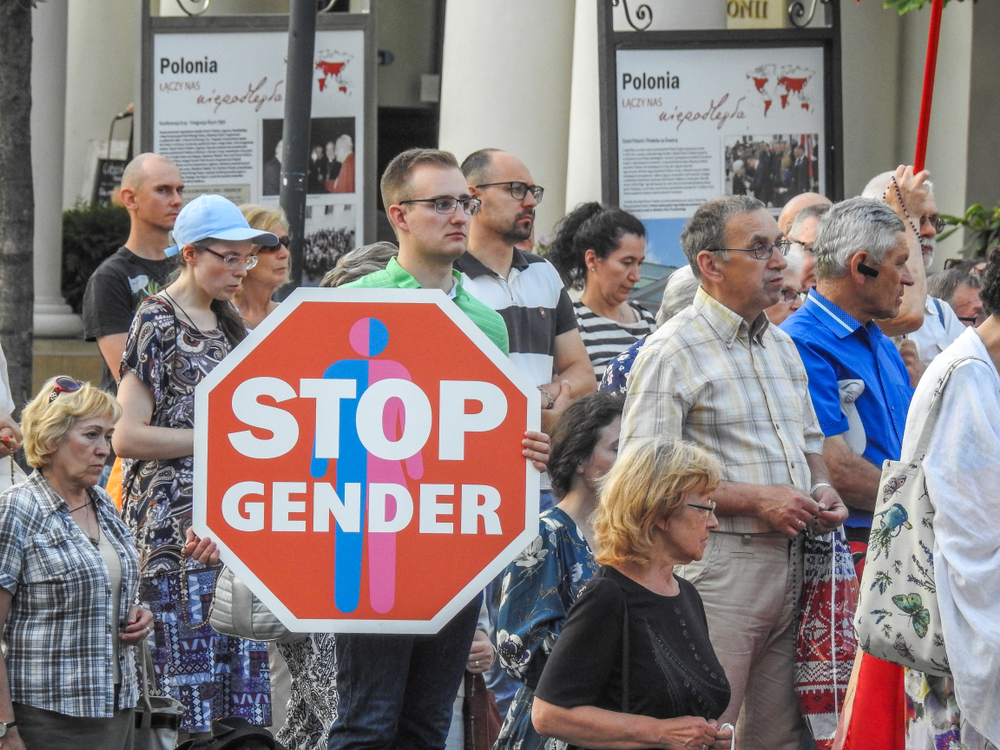
The anti-gender movement has become a key concern for global human rights organisations. Often cloaked in rhetoric like “protecting family values,” “child welfare,” and “religious freedom,” its true aim is to curtail the rights of gender-diverse communities through legal and policy changes.
Across Europe, Asia, and the Americas, we’ve seen a similar shift: Hungary, Italy, the Netherlands, Norway, and Luxembourg have pushed laws banning LGBTQ+ content in schools; Austria, France, Ireland, and Poland have restricted trans healthcare for minors. Hungary even banned the Budapest Pride parade, citing “child protection,” and permitted events only in private spaces. In 2025, the UK ruled that the term “woman” in its Equality Act refers to biological sex assigned at birth, excluding trans women from legal protections as “women.”
In Japan and South Korea, arguments for “preserving traditional culture” have reinforced binary gender norms and exclusion of trans communities. In the U.S., 49 anti-LGBTQ+ bills were passed in 2024 alone, many specifically targeting trans rights. After Trump returned to office, he banned trans women from women’s sports, ordered federal agencies to recognise only male or female sex, and rejected “X” as a gender marker.
These shifts are not isolated events, but part of a coordinated global movement, backed by well-funded, influential conservative and far-right groups who weaponise fear and anxiety. The anti-gender movement thrives in the age of social media, where echo chambers and emotional manipulation allow hateful rhetoric to spread rapidly and build mass support.
The Rhetoric Behind the Rollback: How Anti-Gender Forces Divide Societies
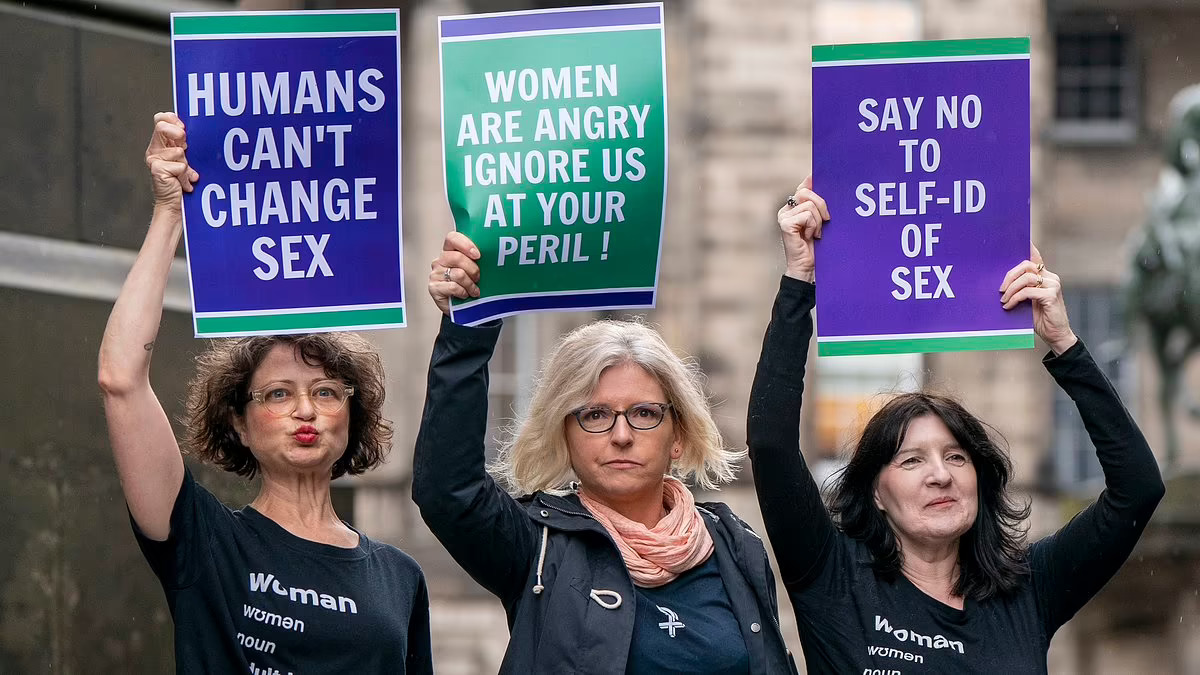
A common anti-gender strategy is to exploit fear under the guise of “protecting women” or “protecting children.” These narratives—while appearing protective—actually stoke social anxiety and deepen mistrust between groups.
In the UK, the April 2025 Supreme Court ruling on the Equality Act 2010 adopted the view of the conservative group For Women Scotland: that the legal definition of “woman” should be based on sex assigned at birth. This redefinition excluded trans women from legal recognition and restricted gender-diverse people’s access to public spaces.
Within this narrative, trans people are cast as threats to gender norms and women’s safety—not as citizens entitled to rights. It’s not just a linguistic attack—it’s the legal erasure of rights. When societies face fear and uncertainty, they often seek scapegoats. The anti-gender movement manufactures “outsiders” to reinforce dominant values and deflect attention from structural problems.
Furthermore, the rapid development of AI and the spread of misinformation online have worsened the situation. Online platforms have become hotbeds for anti-gender rhetoric and smear campaigns against advocates. These aren’t isolated trolls, but politically coordinated attacks by governments, parties, and civil society actors. Tech giants like Meta and X have downplayed the problem instead of cracking down on hate speech, increasing the digital vulnerability of gender-diverse people.
Power Cut: How U.S. Aid Cuts Are Dimming Global LGBTQ+ Progress
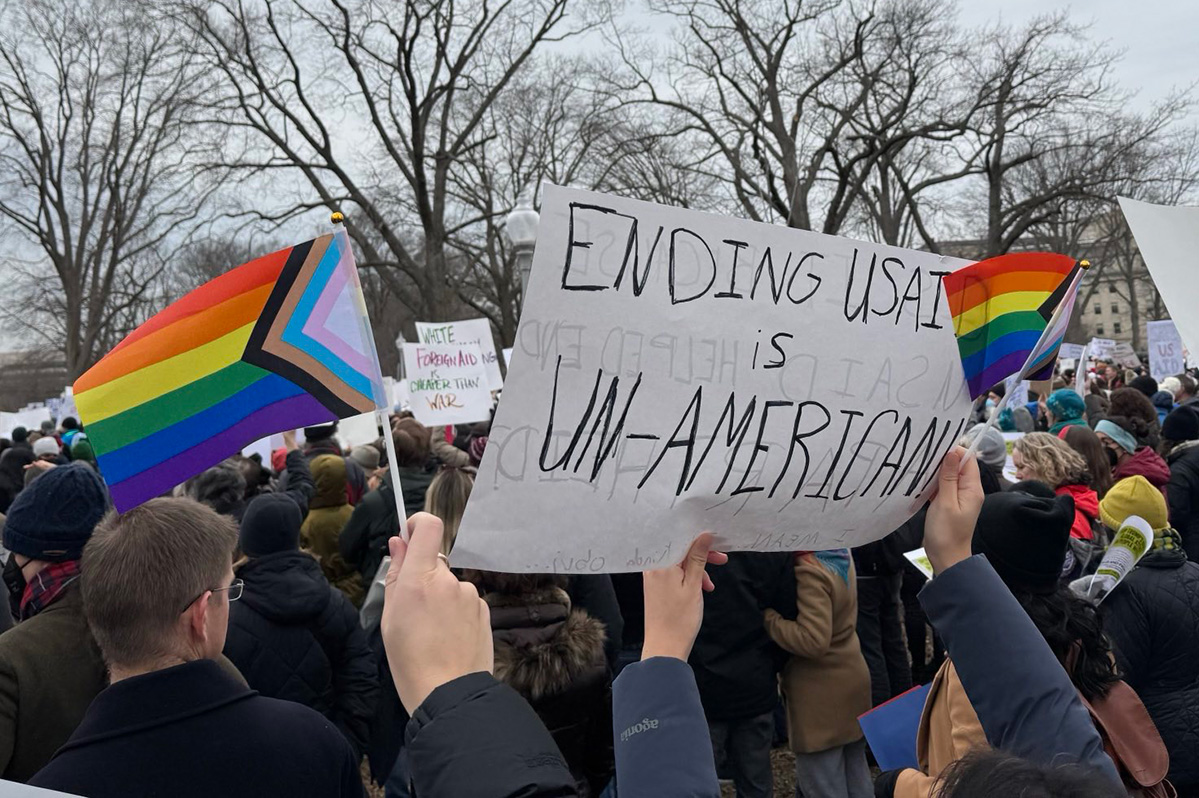
In its 2025 report Defunding Freedom, Outright International revealed how U.S. foreign policy—once a major supporter of LGBTQ+ organisations worldwide—has veered rightward. Since Trump’s return, funding has been slashed, leaving many LGBTQ+ groups unable to operate or advocate effectively.
In South America, programs that supported trans migrant women with employment, empowerment, and entrepreneurship training have been entirely shut down, pushing many into violence and exploitation. In Southern Africa, HIV-prevention organisations have folded due to frozen U.S. funding, laying off staff and halting vital services.
A program director told Outright:
It’s grim. We’re heartbroken, trying to stay calm. Aid is being cut, but the need is still there—and growing. We are pushing extremely vulnerable communities toward violence—drug trafficking, human trafficking, and crime. This isn’t just about individuals; it’s about the future of entire communities.
These funding cuts profoundly affect already-marginalised groups—leaving urgent needs for medical care, legal support, and shelter unmet. Without international support, local organisations are further stigmatised as “anti-family,” “foreign agents,” or “out of touch,” intensifying local hostility and violence.
The report also highlighted that some LGBTQ+ shelters, clinics, and community spaces had to shut down, leaving those who relied on them even more isolated. Meanwhile, multinational corporations—often eager to appease local conservatives for profit—have withdrawn support, weakening civil society’s voice.
A Moment of Solidarity: Pride Marches Across the U.S.
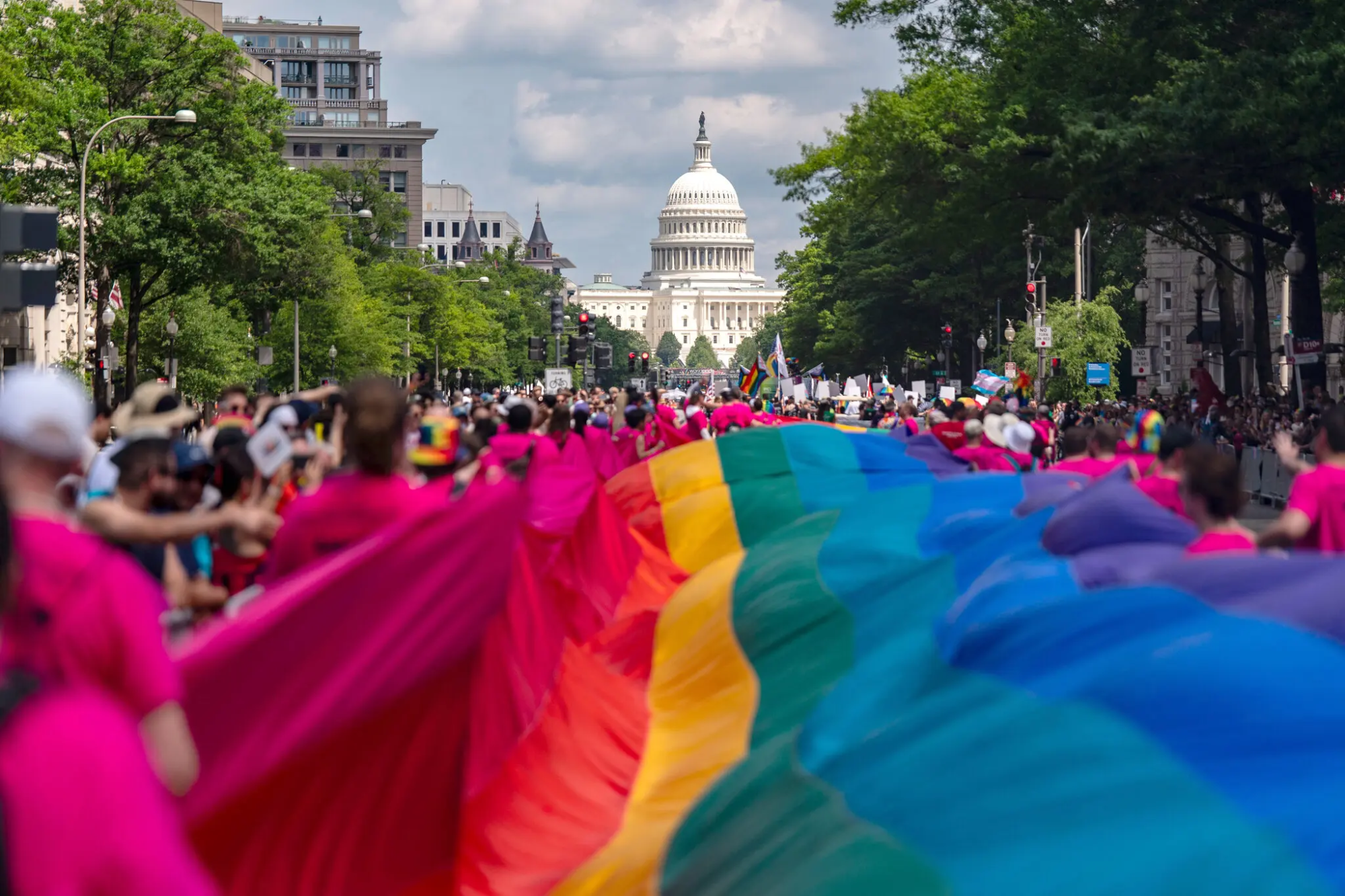
According to The New York Times, over a million people joined the WorldPride march in Washington, D.C. on June 7, 2025, showcasing LGBTQ+ pride and solidarity. Hosting this global event in the political heart of the U.S. highlighted current tensions around LGBTQ+ rights.
Despite the festive atmosphere, Trump’s rollback of trans rights loomed large. With the parade route near the White House and Capitol, some international attendees—particularly trans people—opted out due to safety concerns. Ryan Bos, Executive Director of Capitol Pride Alliance, said they had expected 3 million attendees for the three-week festival, but actual turnout was far lower.
Sister Sybil Liberties, a drag queen from the Sisters of Perpetual Indulgence in D.C.—a queer charity using nun drag to critique gender and morality—said:
Visibility and pride are more essential than ever, especially for young people in less diverse or accepting areas outside D.C. Seeing this parade matters.
In San Francisco and New York, Pride events were scheduled for June 28–29. But Trump’s rollback of federal DEI policies caused a domino effect among private companies, leading to major sponsorship withdrawals. San Francisco Pride organisers reported a USD 300,000 budget shortfall—about 10% of total costs—after losing sponsors like Comcast, Anheuser-Busch, Diageo, and Benefit Cosmetics. New York Pride raised only 80% of its target, prompting a community crowdfunding campaign. In just a few days, nearly USD 25,000 (approx. NTD 740,000) was raised from nearly 200 donors.
Reflecting from Taiwan: How Do We Respond in Asia?
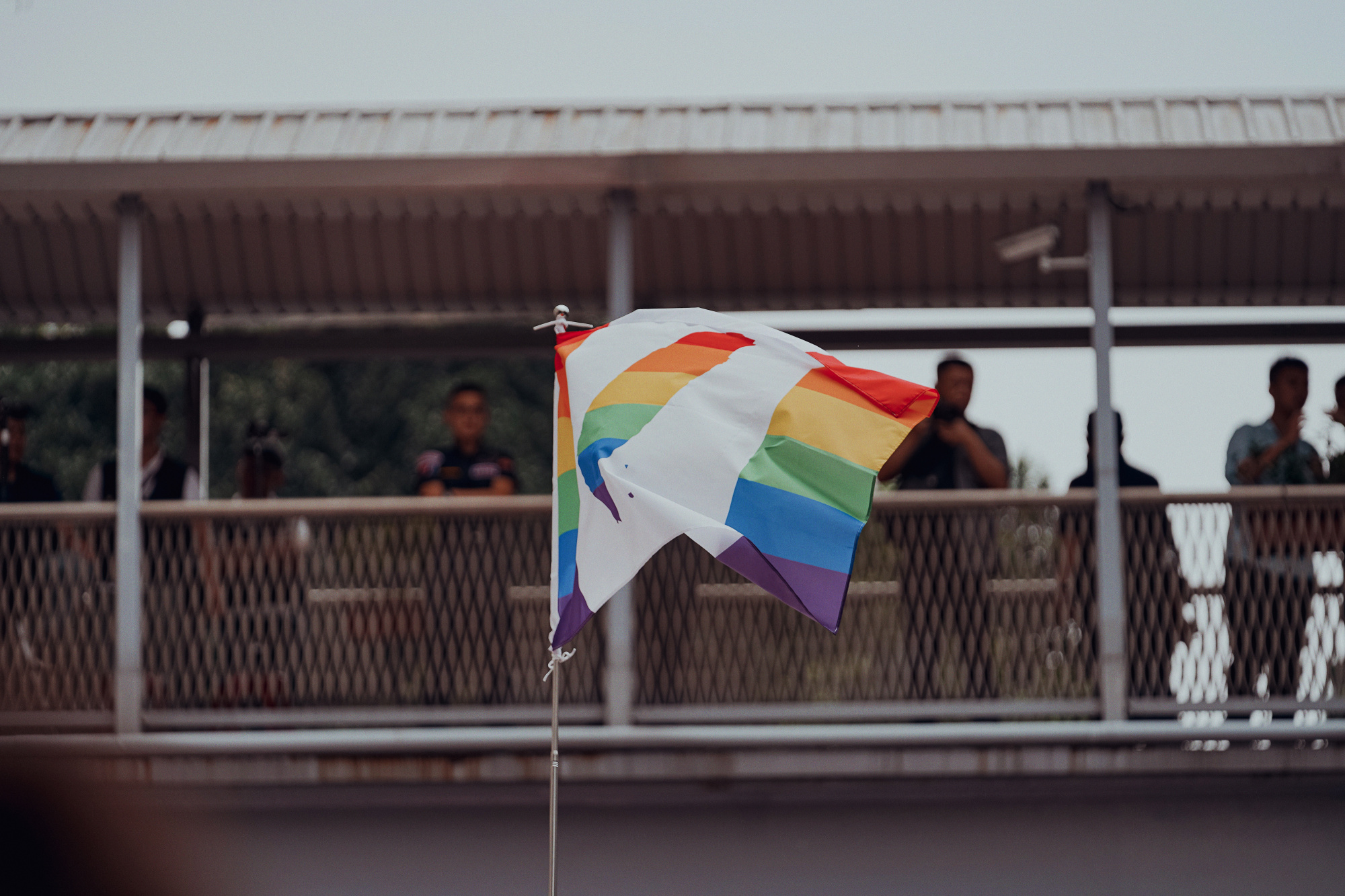
Back in Taiwan, since the 2019 implementation of same-sex marriage legislation, the country has become a beacon of gender equality in Asia. Yet, public spaces are not always inclusive. Trans people still face stigma—such as hostile stares in public restrooms—highlighting widespread misunderstandings like “gender expression ≠ gender identity.”
A 2024 survey by Taiwan’s Ministry of Health and Welfare revealed that LGBTQ+ individuals face more online violence than heterosexuals, including harassment, hate speech, and doxxing. Taiwan still lacks a comprehensive anti-discrimination law. Gender-diverse people continue to face structural challenges in workplaces, healthcare, and education. (Support TEC in pushing for anti-discrimination legislation to build legal understanding of gender diversity.)
Even in Thailand—another country with same-sex marriage—LGBTQ+ advocates face harassment, threats, and digital abuse. Thai activist Sirasak Chaited said:
After I posted calling for legal recognition of trans people, I received threats and hate comments accusing me of being greedy and demanding I shut up.
Thailand’s gender equality law, passed in 2015, bans discrimination based on gender—but exemptions can still be made under vague terms like “religious principles” or “national security.”
Pride Month: A Time for Reflection, Resistance, and Renewal
Half a century after Stonewall, gender-diverse communities have made progress—but also face rising attacks. The global anti-gender movement reminds us that rights are never guaranteed—they must be defended and reaffirmed.
In this polarised era, TEC believes we must reject binaries and embrace inclusion and diversity. When women’s rights are weaponised to exclude trans rights, or “child protection” is used to suppress gender education, we must speak clearly: true equality doesn’t come from fear and division, but from building safe and inclusive spaces for all.
Associate Professor Po-Han Li, Institute of Health Policy and Management, College of Public Health, National Taiwan University, once said:
Many Western anti-gender advocates argue for ‘freedom of speech,’ but they refer to negative freedom—freedom from government interference. We should also value positive freedom—the right to speak, express, and be oneself.
Gender-minority communities are global communities.
This Pride Month, the Taiwan Equality Campaign invites you to keep following international developments in gender rights. Celebrate every step forward. Rise against every setback. Support one another—and keep moving for every unique voice.

